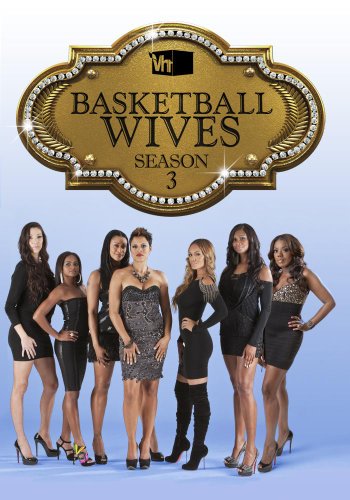Relationship for Muslims can be very completely different from west ways
The epidemic possesses reshaped Americansa€™ societal and passionate schedules. Relationship, basically, has really become additional stressful. For Gen-Z and millennial Muslim lady, that complications are exacerbated simply because they make an effort to balances faith, tradition and gender.
Romance for Muslims can be hugely unlike Western techniques. Within Islam, a halal, or permissible, way of dating ways receiving father and mother or a 3rd party concerned early; abstaining from relaxed periods, hookups and sex; and speaking about relationship right away. Numerous United states Muslims state ita€™s difficult to contain both these different identifications. Ita€™s even more complicated for LGBTQ Muslims, whose going out with everyday lives are considered forbidden within the Muslim group. (in recent times, liberal Muslims being trying to normalize this.)
For a number of Muslim females, occurring goes in public spaces and achieving father and mother watch over them a€” or taking place goes in trick a€” was normal ahead of the epidemic. Currently, they are saying, thata€™s basically impossible.
Down the page, three ladies, all in various romance scenarios, tell us how theya€™re navigating this newer normal.
Going out with as constraints double along
Relationship easily was already logistically burdensome for Nihala Malik, a 25-year-old Pakistani Muslim from Ontario.
Vendor pandemic, Malik claims them people, who she life with, would tell the woman, a€?Dona€™t stay out late, dona€™t sit up far too late, dona€™t make this happen.a€? The good news is, with stay-at-home limitations, ita€™s: a€?You cana€™t go forth at all.a€?
Malik along with her boyfriend ended up matchmaking in key for a bit over 12 months and one-half after the pandemic strike. Lately, these people made a decision to determine their own adults a€” which, for many individuals Muslims, means beginning talks about wedding.
The happy couple came across on Muzmatch, a Muslim online dating software, and struck it all immediately. They comprehended each othera€™s amount of religiosity, says Malik, but she however struggled to weigh their trust while going out with openly. It has been hard to stay under the view of people in the neighborhood, she claims.
Malik states going out with their companion implied are afflicted by the a€?fear belonging to the auntie surveillance say,a€? which she represent as family associates becoming prepared to report back into the lady folks if they learn this model with a guy. That fear has actually often influenced just how dependable and present she feels when you look at the commitment, she says, a phenomenon that numerous Muslim people describe.
The pair experienced a long-distance relationship while Malik came to regulation university in Ottawa along with her sweetheart stayed in Toronto area. These people wanted to encounter back-up in Toronto area this summer, nevertheless pandemic reach. Theya€™ve carried on as of yet long-distance, even though Malik happens to be dealing with Toronto with her mom and dad and.
Which has forced the couple for innovative.
a€?i really couldna€™t get out for an incredibly lifetime,a€? Malik states. a€?I experienced is like, a€?Ia€™m just visiting perform the market,a€™ and my favorite man would arrive at the grocery store.a€?
As matter create in Toronto area, Malik and her sweetheart have already been meeting all the way up at commons and centers, she claims.
Addressing racism and colorism in a relationship software
With protests adding a limelight the racism and colorism that prevails throughout the country, people become learning how to navigate wash while online dating.  Muslims, way too, tend to be reckoning because of the concern in their own personal networks.
Muslims, way too, tend to be reckoning because of the concern in their own personal networks.
The pandemic encouraged Ghufran Salih to experience Muslim matchmaking programs. The 22-year-old, who had been in Syracuse, N.Y., throughout the stay-at-home orders, decided to register Muzmatch and another Muslim online dating software also known as Minder. But she put each application after each week roughly.
Nonreligious a relationship programs, for instance Tinder or Hinge, are usually accustomed embark upon periods, pick hookups or find a substantial other. But the majority Muslims incorporate religion-specific software to obtain a husband or partner. Within Islam, causal gender and matchmaking for enjoyment are haram, or otherwise not permissible; marriage will be the objective. Naturally, not every Muslim follows this or feels over these practices, but this really is a cultural truth for a lot of millennial Muslims.
Salih claims ladies in the Muslim community typically dona€™t speak about sexuality, particularly the undeniable fact that getting sexual urges is definitely normal for ladies. She claims that during quarantine, she noticed lonely; although she a€?didna€™t might like to do any such thing haram,a€? she learn the software as a method to an end. She decided, a€?let’s say I-go completely and simply should locate some body then I’m able to become married and get love a€¦ thata€™s style of in which my personal brain place is at.a€?
But once she was really throughout the online dating apps, Salih says several factors impeded the ability to select some body during the epidemic. An inside problem, she claims, got that shea€™d accompanied the software from boredom considering self-quarantine; she gotna€™t truly equipped to be in a life threatening commitment. Although she received some good talks, she seen she amna€™t getting it seriously as different Muslims.
Another aspect for Salih was the split in nationality and competition within your Muslim area that this beav learn shown into the programs. She claims she experience much more South Asian and mid Eastern Muslims throughout the software than black colored or Sudanese Muslims like by herself.
a€?In my experience with [Minder], inclination have types of absorbed peoplea€™s brains,a€? Salih claims. a€?There is a little bit of racism in the Muslim area and colorism around the Muslim community which we still needna€™t spoken of.a€?
